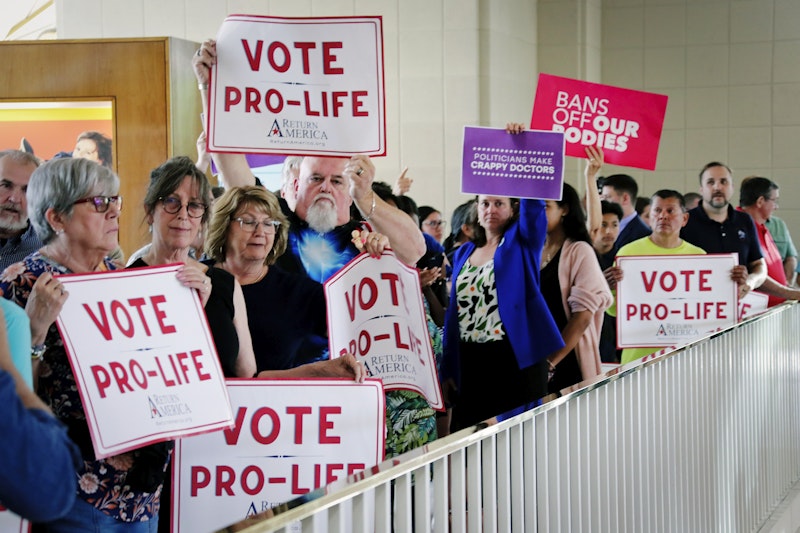Fresh off a loss in Ohio last month, the pro-life movement is set for another defeat this November. It’s the latest example of why the movement needs to start giving another idea more priority: reducing demand for abortion.
Pro-lifers and the business community failed to change the threshold necessary to pass referenda in Ohio from 50 plus plus one vote to 60 percent. It was a referendum that coupled two of the Republican Party's unpopular issues: its opposition to minimum wage increases and its pro-life stance. Pro-lifers supported the referendum to give themselves a better chance of stopping a November 2023 ballot question that would legalize elective abortion in Ohio until about 24 weeks. However, their side lost the August vote by double digits and will likely suffer the same fate in November. It’ll be the latest in a string of double-digit losses for the pro-life movement at the ballot, including resounding defeats in Kansas and Michigan last year, plus many blue states.
Most Americans support legal first-trimester abortions and restrictions on the small minority of later abortions. Yet, most people also want the country to have fewer abortions because some dislike abortion but don’t want it banned. It's also one of the toughest political issues when it comes to changing someone's mind. While I’ve convinced some people that one shouldn’t need a government-issued license to be a barber and that colleges should offer three-year bachelor's degree programs, I've never made someone flip their stance on abortion.
I’m pro-life and don’t want unborn children killed; for me, it’s far more important than what pronouns someone uses, where they go to the bathroom, or which swim team they compete for. I support adding a human life amendment to the United States Constitution, yet acknowledge how unrealistic that is in 2023-America. While the pro-life movement isn’t talking about a human life amendment, the feeble 15-week federal gestational limit that some pro-life organizations and presidential candidates want is unrealistic. Getting that done would require at least 60 pro-life votes in the U.S. Senate; 46 of the 100 U.S. Senators are currently pro-life, so we’re likely closer to the federal government codifying abortion rights nationwide than we are to getting it.
Some politicians call it a state issue. However, I live in Massachusetts, where most elected Republicans are pro-choice, so this patchwork approach has never appealed to me. Plus, even with Roe v. Wade overturned, elective abortion is still legal in 35 states, and referenda could increase that number. Pro-lifers can scream all we want about why the federal government should ban abortion after 15 weeks or why Massachusetts should reinstate its born-alive protections, but that won’t do anything.
Federally and in many states, restricting abortion access is a non-starter. Also, in states that have banned abortion, demand for abortion still exists. And this is such an important issue that, as a pro-lifer, I think an all-hands-on-deck approach is necessary. The pro-life movement should treat stopping abortion like Game 7 of the World Series—the game where your team is willing to use every last arm it has to win.
If pro-life organizations and politicians want to reduce abortions, they should support policies that reduce unintended pregnancies and the cost of raising a child. They should also back policies that promote adoption and a culture that respects life from conception to natural death. Banning abortion is good, too, but that’s not feasible in many states.
Evidence exists showing that free long-term birth control for low-income women, child allowances, sex education in schools, and crisis pregnancy centers reduce abortion rates, the latter of which could receive financial assistance from local governments. Making healthcare and childcare more affordable could help, as could expanding paid family leave (or even unpaid leave), making oral contraceptives available over the counter, and forcing health insurers to cover vasectomies without cost sharing, but I haven’t seen comprehensive numbers on how those impact rates.
Complications exist in that the pro-life movement is often run by the Christian right, which supports Republican economic policies and generally opposes contraception. There’s no shame in abandoning political ideology and doing whatever it takes to address the issue. I'd rather be known as a big-government socialist who helps save babies' lives than a principled limited-government disciple who doesn't see curbing demand for abortion as the government’s responsibility.

